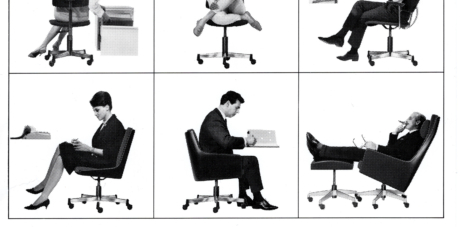To provide the best experiences, we use technologies like cookies to store and/or access device information. Consenting to these technologies will allow us to process data such as browsing behaviour or unique IDs on this site. Not consenting or withdrawing consent, may adversely affect certain features and functions.
The technical storage or access is strictly necessary for the legitimate purpose of enabling the use of a specific service explicitly requested by the subscriber or user, or for the sole purpose of carrying out the transmission of a communication over an electronic communications network.
The technical storage or access is necessary for the legitimate purpose of storing preferences that are not requested by the subscriber or user.
The technical storage or access that is used exclusively for statistical purposes.
The technical storage or access that is used exclusively for anonymous statistical purposes. Without a subpoena, voluntary compliance on the part of your Internet Service Provider, or additional records from a third party, information stored or retrieved for this purpose alone cannot usually be used to identify you.
The technical storage or access is required to create user profiles to send advertising, or to track the user on a website or across several websites for similar marketing purposes.
 A new report, Delivering Net Zero Carbon in the Workplace [BCO members only] produced by University College London Consultants (UCLC) for the British Council for Offices (BCO), claims to identify the barriers that businesses are facing as they strive to drastically reduce the carbon footprint of their offices. The report, informed by over 100 office occupiers and building professionals, outlines the measures that those working in the office sector can take to overcome these barriers at what the report suggests is low or zero cost. (more…)
A new report, Delivering Net Zero Carbon in the Workplace [BCO members only] produced by University College London Consultants (UCLC) for the British Council for Offices (BCO), claims to identify the barriers that businesses are facing as they strive to drastically reduce the carbon footprint of their offices. The report, informed by over 100 office occupiers and building professionals, outlines the measures that those working in the office sector can take to overcome these barriers at what the report suggests is low or zero cost. (more…)








 All of humanity’s problems,” the French scientist and philosopher Blaise Pascal wrote in 1654, “stem from man’s inability to sit quietly in a room alone.” He may have been right, but then again, sitting in a room alone isn’t necessarily a great state of permanent being either. There was a time we used to talk with dismay about the Japanese phenomenon of intense social distancing known as hikikomori. We would consider with horror the isolation, lack of engagement with society, poor mental health and loneliness of the people who had almost completely withdrawn to their rooms. Those poor bastards locked up in enclosed spaces linked to the outside world only by screens.
All of humanity’s problems,” the French scientist and philosopher Blaise Pascal wrote in 1654, “stem from man’s inability to sit quietly in a room alone.” He may have been right, but then again, sitting in a room alone isn’t necessarily a great state of permanent being either. There was a time we used to talk with dismay about the Japanese phenomenon of intense social distancing known as hikikomori. We would consider with horror the isolation, lack of engagement with society, poor mental health and loneliness of the people who had almost completely withdrawn to their rooms. Those poor bastards locked up in enclosed spaces linked to the outside world only by screens. 
























November 23, 2022
The unspoken privilege of wellbeing
by Stephanie Fitzgerald • Comment, SF, Wellbeing